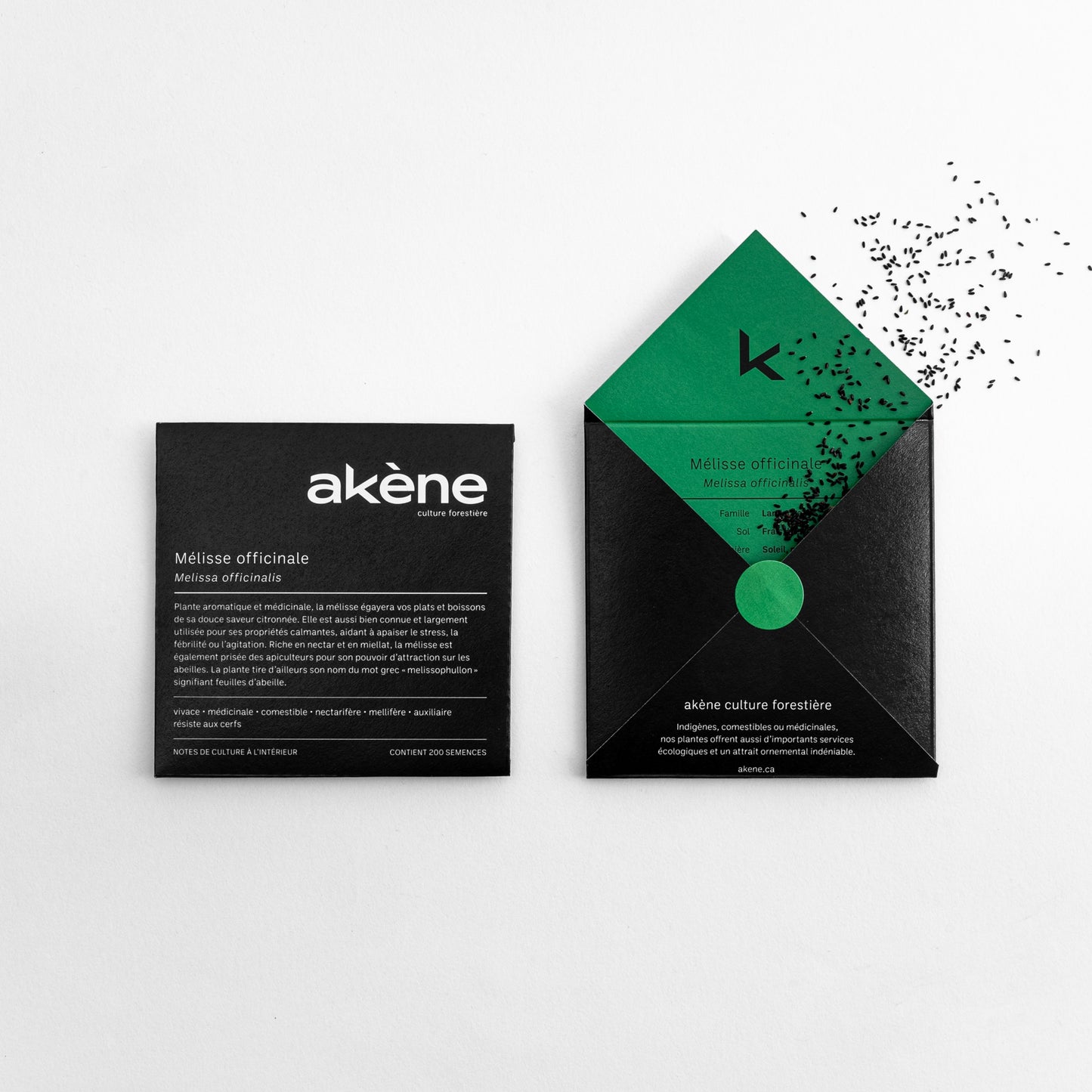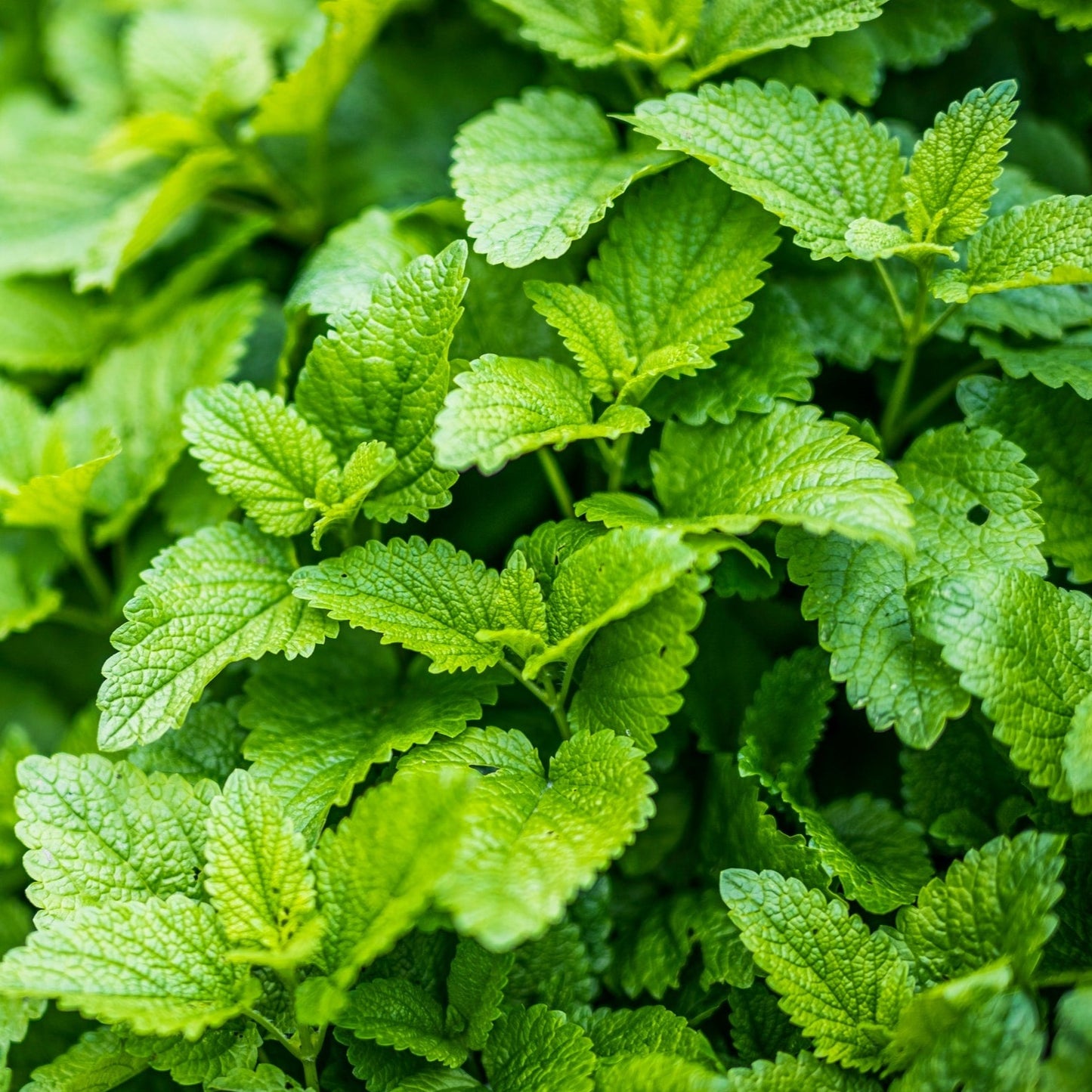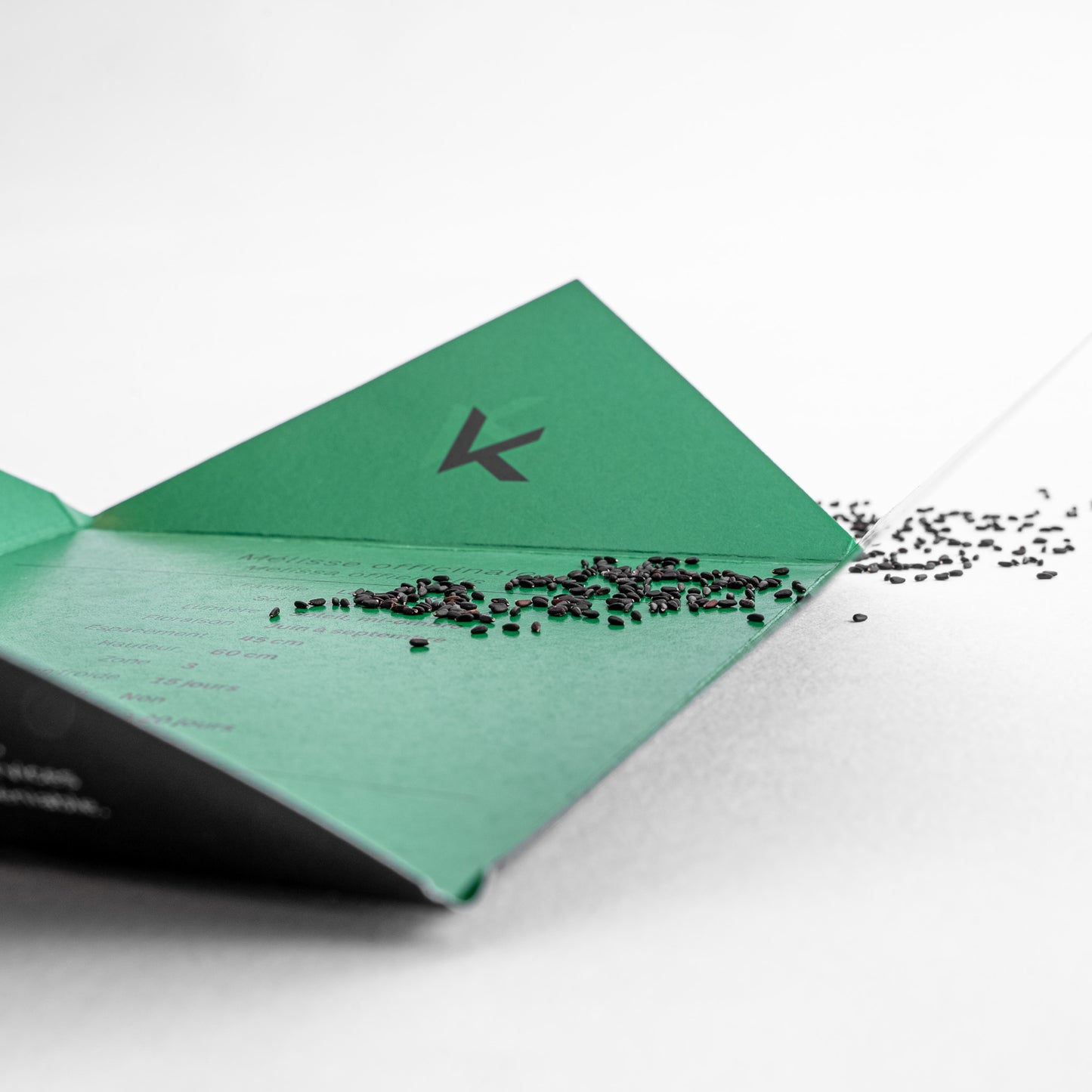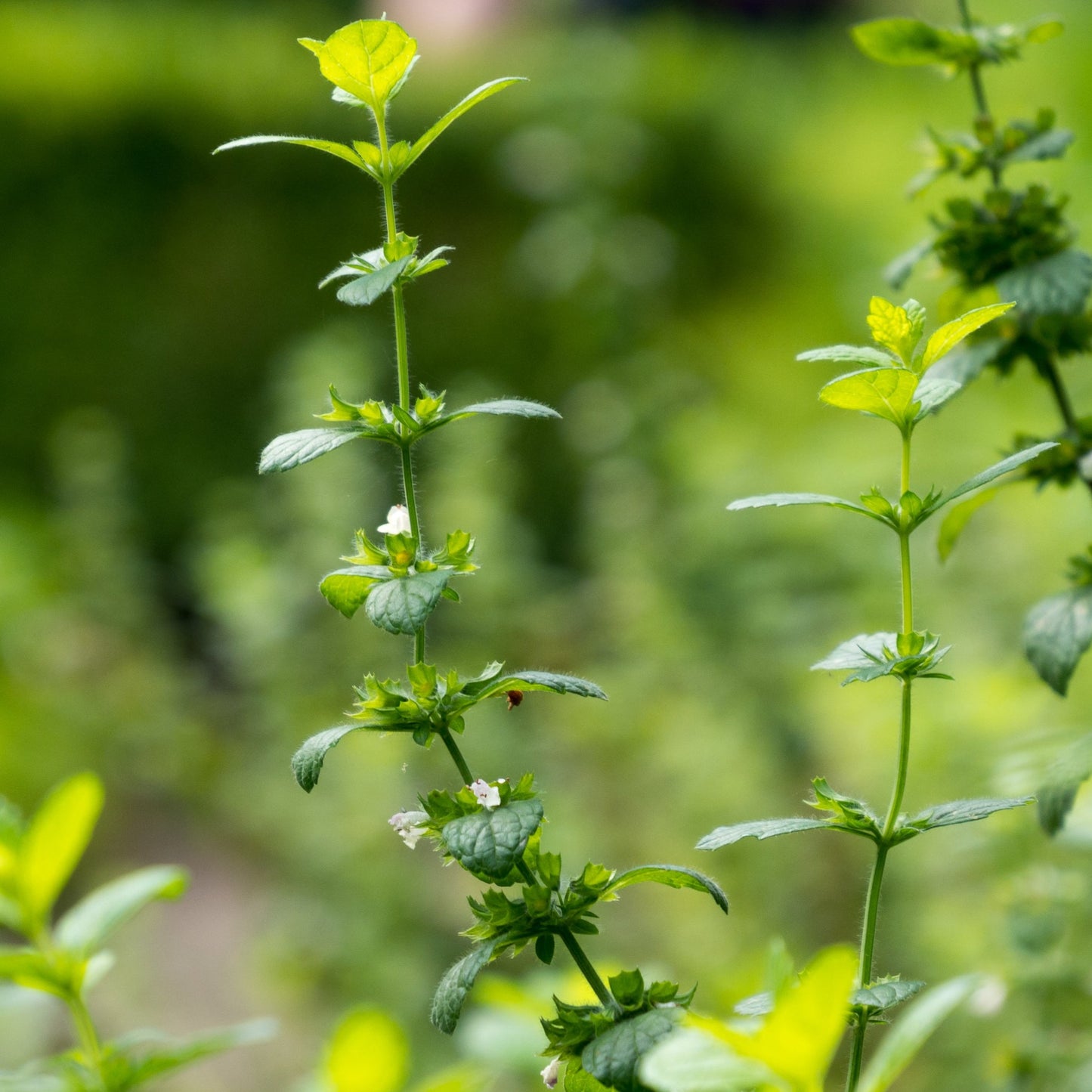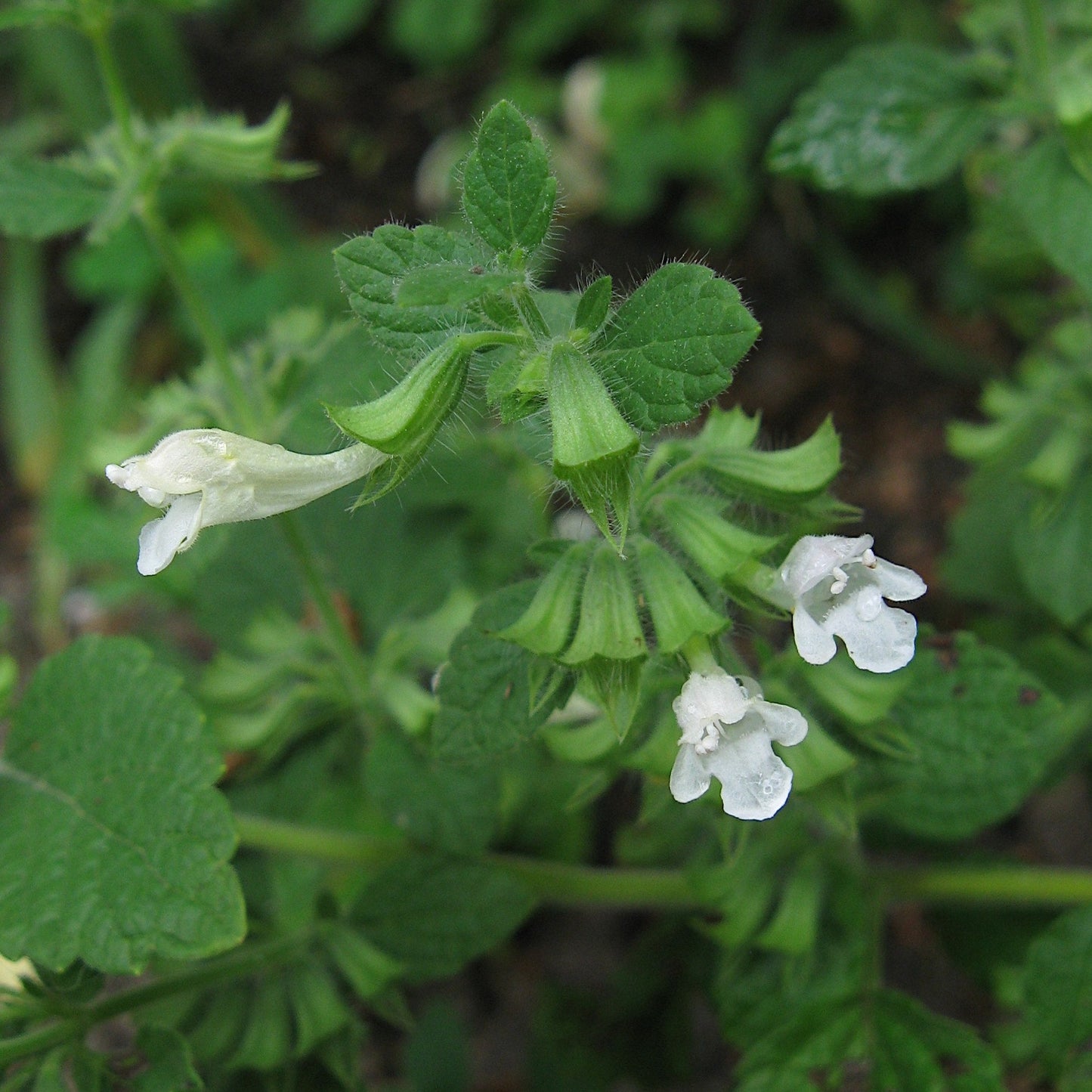This site is protected by hCaptcha and the hCaptcha Privacy Policy and Terms of Service apply.
For successful seedlings,
see the growing notes at the bottom of the page!
Lemon balm (Melissa officinalis) is an aromatic and medicinal perennial plant, valued for its gentle lemony flavour, which adds a refreshing touch to dishes and drinks. Thriving in rich, well-drained soil, it grows well in full sun to partial shade and typically reaches a height of 60 cm. Lemon balm is known for its calming properties, often used to reduce stress, ease restlessness, and promote relaxation. Rich in nectar, it is highly attractive to bees and is a favourite among beekeepers. Its name comes from the Greek melissophullon, meaning "bee leaf."
Medicinal and Culinary Uses
Lemon balm has numerous medicinal properties. Its leaves are antispasmodic, carminative, sedative, digestive, and mildly analgesic. In infusions, lemon balm is used to calm nerves, reduce anxiety, and relieve mild headaches. It is also effective for easing minor digestive issues, like bloating and stomach cramps, and promotes restful sleep due to its mild sedative effects. In cooking, its fresh leaves lend a lemony, aromatic note to salads, teas, and desserts, making lemon balm as tasty as it is beneficial.
Ecological Roles
Lemon balm plays an important ecological role by attracting many pollinators, particularly bees, drawn to its nectar and honeydew. This plant is ideal for pollinator-friendly gardens, supporting local bee populations. By adding lemon balm to naturalized or kitchen gardens, gardeners benefit from its culinary and medicinal uses while supporting local biodiversity.
Lemon balm seeds require cold stratification to ensure germination. See the cultivation notes below for more details.
Akène cannot assume any responsibility for the use of plants for therapeutic purposes. Always seek advice from a professional before using a medicinal or edible plant.
Sowing and Growing
Technical Details
Seeds per packet: 200
Family: Lamiaceae
Scientific name: Melissa officinalis
Life cycle: Perennial
Hardiness zone: 3
Soil type: Loamy
Soil moisture level: Medium to slightly humid
Soil - additional attributes: Well-drained, rich
Light: Sun, part shade
Blooming: June to September
Spacing: 45 cm
Height: 60 cm
Deer resistance: High
Stratification: 15 days
Scarification: No
Germination time: 15 to 20 days
Sowing depth: Surface

